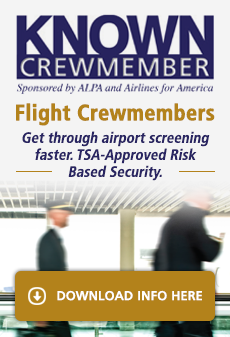
While passengers have been asked to turn off their cell phones, tablets, computers, and e-readers for years, pilots have never been required to adhere to this policy...until now.
The FAA recently implemented a regulation requiring pilots to turn off personal devices while the plane is operating, from departure to destination. The rule will be fully in effect in the next two months.
Why the sudden change?
Back in 1981, the FAA vowed “to ensure that certain nonessential activities do not contribute to the challenge of task management on the flight deck or a loss of situational awareness” when it passed the Elimination of Duties and Activities of Flightcrew Members Not Required for the Safe Operation of Aircraft Final Rule.
Also known as the “Sterile Cockpit” rule, the use of electronics during taxi, takeoff and landing, as well as any other activity below 10,000 feet has been banned for more than 30 years. But now the new rule will require all phases of flights to be digital device-free.
Shockingly (or not), digital devices can be somewhat distracting to pilots, just as they can drivers of other types of vehicles.
When Technology Interferes
There are several examples floating around that demonstrate why this rule is a good idea. A few years ago, a Northwest Airlines crew passed up its destination of Minneapolis by 150 miles when its pilots were using their laptops to review company information. They didn’t hear the call from Denver Airport, and had to be alerted by a flight attendant that they were flying over Wisconsin.
Then two years ago, an Australian pilot forgot to deploy landing gear because he was texting on his phone. He had to abort the landing because the aircraft was too low to land without the deployed landing gear. He was alerted by an in-cabin warning system.
There are many other examples of pilots getting distracted by technology. Fortunately, no major accidents have been reported, but FAA’s stance seems to be: better safe than sorry.
Flight personnel can still use any devices or electronics that directly relate to the operation of the aircraft, says FAA. A few years ago, flight manuals were converted to digital versions read on iPads to save money. Those will still be accessible, but there’s no word on whether pilots will be blocked from playing Angry Birds while on the iPads!
From the Passengers’ Perspective
The general public should feel some relief over this rule, as it is designed to ensure the safety of airline passengers. Even if there have been no direct ties between unnecessary technology use and airline accidents or crashes, no one wants the possibility.
For passengers, though, it looks like the rules about the use of electronics are lightening up while they’re cracking down on pilots. The FCC is discussing potentially permitting calls, texts, and other mobile services above 10,000 feet. It will let commercial airlines decide whether calls are permitted or not. However, there has been much discussion about the social implications of allowing passengers to chat on their cell phones at the expense of the comfort of others on the plane. As a result, the House Transportation Committee recently passed a measure banning the use of talking on a cell phone in the skies.
So while the myth of cell phones interfering with plane equipment has been busted, it turns out it’s the passengers who really don’t want to hear their seatmate rehash last night’s party on their phone.
We don’t expect this to be the final word on digital use in the skies. But as we get a better handle on technology as a society, we’ll figure out the right balance of use, as well as when it’s most appropriate.





